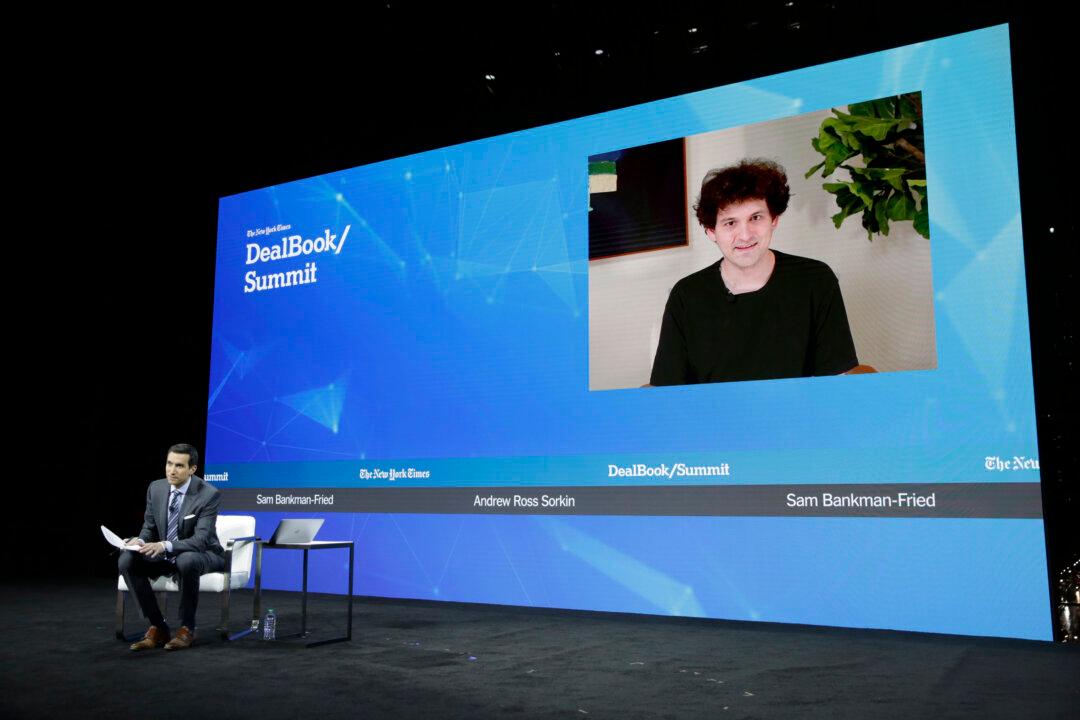Appearing at times contrite, at times evasive, former FTX CEO Sam Bankman-Fried told viewers at a New York Times DealBook Summit that he was “deeply sorry about what happened,” referring to the collapse into bankruptcy of his crypto currency exchange and hedge fund in early November, but that he was unaware of any intentional misuses of customer funds.
Host Andrew Ross Sorkin opened their video interview, which Bankman-Fried joined from the Bahamas, with a question from a man named “Andrew,” who claimed to have lost his life savings investing in the FTT crypto currency on the FTX exchange.





